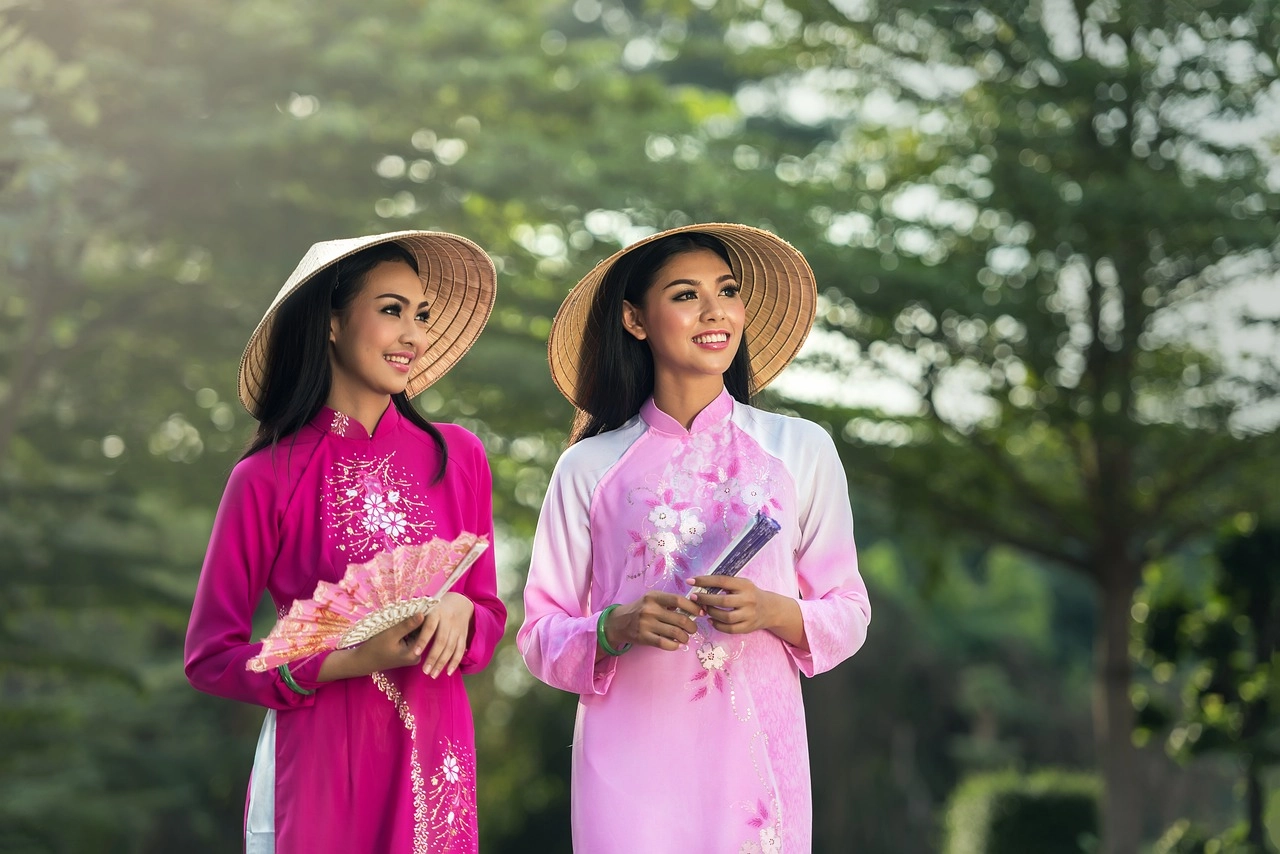Vietnam business culture
 Table of contents
Table of contents
Vietnam is a very ancient country with a rich historical and cultural heritage. The way of life of most ordinary people in Vietnam is not too different from the life of their ancestors hundreds of years ago. However, since Vietnam's accession to the WTO in January 2007, the country has experienced economic growth, which has brought with it great changes.

Many Vietnamese, due to the fact that they do business with foreign partners, have begun to adopt the European lifestyle, etiquette traditions, or, in extreme cases, treat them with understanding.
However, when working with the Vietnamese, it is still worth considering some local features of business culture, which originate in the centuries-old cultural traditions of the country.
Greeting
Ordinary Vietnamese people greet each other with a bow. Although at solemn, official events or in rural areas of the country you can see a welcome gesture in the form of joined palms, accompanied by a slight bow.
During business meetings, the traditional European handshake, previously considered unacceptable in Vietnamese culture, has become popular due to Western influence.
Vietnam — an Asian state, therefore, it has a strict rule for giving a business card to an interlocutor with both hands. Taking a card, you need to read it briefly and put it on the table next to you.
Introduction
Vietnamese rarely introduce themselves first. Displaying one's titles is not acceptable for a Vietnamese who is accustomed to relying on wordless recognition of his merits. Perhaps this is due to their modesty.
In Vietnam, names are very important. Many beliefs and religious prescriptions are associated with names. In this regard, in a business conversation, it is better to refer to the Vietnamese "mister"; or "Madam", not by name. It will most likely be a long time before you are allowed to address a Vietnamese person by their first name. Although this permission will only apply to your personal, friendly meetings. In the presence of a third person, it is extremely important to continue to call the interlocutor "Mr." or "Madam".
Vietnamese names consist of a family name (family name), a middle name, and an individual name. When addressing, you should use the last individual name with "Mr." or "ma'am." As in Russia, it is not customary to call a person by a family name (analogous to our surname) in Vietnam. Officials and government officials are often called by position or profession, for example, Mr. Doctor, Mr. Minister, etc. True, quite often in Vietnam one can meet the appeal " comrade", since the main political role in the country is played by the communist party.
Nonverbal Communication
If you want to call a Vietnamese to you, then you should do it in a low voice, addressing by name and using "mister"; or "ma'am." If you want to draw attention to yourself without words, then you should stretch your hand forward with your palm down. Waving your arms, talking loudly in Vietnam is not accepted. You should also not touch the head and shoulders of the Vietnamese.
Making eye contact is not common in Vietnam. Most likely, this is due to the fact that, according to ancient tradition, you cannot look into the eyes of someone you respect or someone who has a higher rank.
A smile is perceived by the Vietnamese as an expression of politeness. But sometimes it can express grief, anxiety, awkwardness, skepticism. Ignorance of this feature of many eastern countries often leads to misunderstanding on the part of foreigners.
Business communication
Self-discipline lies in the culture of Vietnamese upbringing, so loud conversations, heated arguments and informal communication from the first meetings are not approved by the inhabitants of this country. It is important for a Vietnamese to show tact and delicacy in any matters, so he will never go ahead, he will try to avoid saying the word "no" directly. In work, the Vietnamese welcome communication on an equal footing, courtesy, and punctuality.
For the duration of business negotiations with the Vietnamese, you should be patient; they don't like fuss and quick fixes. You should not completely rely on the words of the Vietnamese, any information needs to be well double-checked.
It is customary in Vietnamese business culture to give and receive gifts. You can even give gifts to family members of your business partners.
Formal communication implies a business dress code. During informal meetings, you can dress looser, but avoid shorts or sleeveless T-shirts.
Vietnam and Russia
The Vietnamese copied a lot from the Soviet Union; here is the same power structure, military ranks, the mausoleum of the party leader and the famous program «Time». The main political role in the country is played by the Communist Party (the flag of the country is a yellow star on a red background, where red is the victory of the revolution, and the star is the leading role of the Communists). True, after the next party congress in 1986, Vietnam decided to start radical economic reforms, proclaiming freedom of enterprise.
The Vietnamese have great respect for Russia. Every schoolchild here knows that their country, which did not have any serious industry, defeated the Americans and allies in the Vietnam War only because the Soviet Union helped it. Today, Vietnam continues to be one of Russia's largest partners in military-technical cooperation. The entire Vietnamese elite, for the most part, studied and trained in the USSR and knows Russian history well, and also constantly monitors events in Russia.



 Other topics:
Other topics:
 REAB Services
REAB Services

 News
News
 Useful tip
Useful tip
